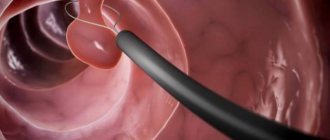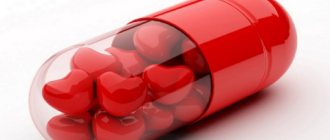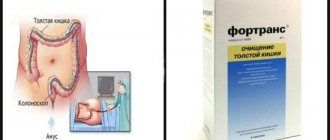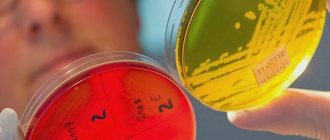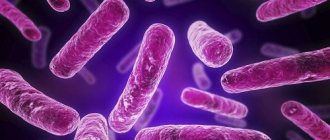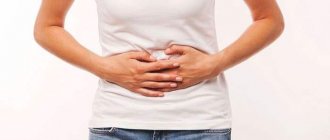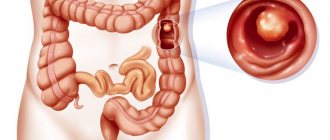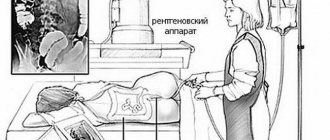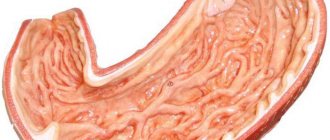Intestinal motility is the systematic contraction of the smooth muscles of the organ, which allows food to move through the gastrointestinal tract and ultimately remove undigested debris from the body.
Motor skills are also necessary for effective digestion: due to the contraction of internal muscles, enzymes from the gallbladder and pancreas are delivered to the hollow organs.
The proper functioning of the totality of all systems of the human body is directly related to intestinal health. A person’s immunity, well-being and performance depend on the state of the gastrointestinal tract. Often, malfunctions in the digestive tract become the basis for the development of other diseases.
What is intestinal peristalsis?
The normal duration of digestion processes is a guarantee of the absorption of all useful substances contained in food. And also that undigested elements will be promptly removed from the body in the form of feces. Peristalsis, or wave-like contraction of the walls of the small intestine and then the large intestine, is responsible for the movement of food from the upper to the lower parts of the gastrointestinal tract.
Certain negative factors can greatly affect the motility of the organ. As a result, disorders of varying severity develop.
Nutrition as the main influencing factor
The main role in treatment is given to nutrition. The diet should be balanced. The intestines react sensitively to any product consumed. It, as an indicator, evaluates a person’s approach to choosing food. It is necessary to strictly separate products according to the degree of influence on peristalsis. Watch the video: Super - food for the intestines.
https://youtu.be/2Vhuj2SPyWQ
Products that stimulate intestinal contractions
Properly selected food can improve the functioning of the digestive organs; it is necessary to consume foods that improve the contraction of the intestinal walls.
Vegetables
Depending on the season, radishes and turnips, radishes and beets are selected. Sauerkraut is in first place for improving the health of the body. A naturally fermented product is required, without the addition of vinegar.
It improves the movement of food through the intestines, promotes the release of harmful substances and toxins, saturates the body with vitamin C, cleanses blood vessels, and improves blood circulation. If you add vegetable oil before use, the effect will increase. Melons and melons help a lot, you should eat more watermelons and melons, tomatoes and cucumbers, onions and garlic.
Of particular note are beans containing coarse fiber. It promotes the formation of a bolus of food, which, when passing through the large intestine, irritates its walls and causes an improvement in peristalsis.
Coffee
It energizes and gives nerve impulses to the intestinal muscles, causing them to wake up and become more active for the coming day. A cup of coffee enhances bowel function in just four minutes. The caffeine contained in drinks triggers the process; you can also drink other drinks containing this substance.
Fresh fruits and berries, compotes from them
Vitamin substitutes for lemonades and other store-bought drinks. You can mix pureed apple, sprouted wheat, oats in equal proportions, and flavor with honey. Use in any quantity.
I would especially like to highlight orange, which helps soften stool. It consists of fiber; 100 g of this fruit contains 80 g of water, which is also great. Contains flavonoids, which cause the cells of the intestinal walls to release water, thereby helping to liquefy stool. They become elastic and soft, which makes the relief a pleasant procedure.
Vegetable oils
Adding sunflower or olive oil to salads will have a positive effect on the functioning of the gastrointestinal tract. Some people prefer to drink 2 tbsp on an empty stomach. l. oils If you do this daily, you can forget about constipation. This method is not suitable for everyone; there are people who find it difficult to swallow such an amount - a gag reflex appears. Corn and flaxseed oil are also recommended.
Bran and wheat bread
Not only bran bread is recommended, but also the bran itself. If 1-2 tsp. wash it down with water, then increasing in volume, they will begin to irritate the intestinal neurons, which will trigger the work of the muscles and the easy passage of feces.
Dried fruits
It is advisable for everyone to use, regardless of the presence of intestinal problems. For those who do not like prunes and dried apricots, you can prepare a mixture of dried fruits. To do this, they are passed through a meat grinder; raisins and figs are added if desired. Take one spoon daily half an hour before meals as a medicine. Keep refrigerated.
Seafood
Seaweed is beyond competition. When it comes to fish, give preference to non-fatty varieties. Drinking regime plays an important role. Every day you need to drink up to 2 liters of clean water. Drink a glass of warm water on an empty stomach. This promotes better bowel movements and enhances peristalsis.
Symptoms of the disorder
If intestinal motility is impaired, a person will experience the following symptoms:
- Pain in different areas of the abdomen, intestinal colic. The onset and disappearance of discomfort is sometimes associated with eating, defecation, or other aspects.
- Increased gas formation.
- Stool disorders, which are expressed in chronic constipation. Sometimes diarrhea takes over. But more often it is difficult to achieve defecation; only laxatives or a cleansing enema help.
- Increase or, conversely, pathological decrease in weight.
- A constant lack of feeling of comfort, severe pain, and problems with bowel movements provoke the development of depressive conditions. A person feels irritated and suffers from insomnia.
- Feeling of weakness, low-grade fever, lack of appetite, nausea and other symptoms of intoxication of the body. Allergic reactions that were not present in the anamnesis may appear. Skin lesions – rashes or pimples – also often occur.
These symptoms are characteristic of all diseases of the gastrointestinal tract. Therefore, before starting to normalize peristalsis, it is necessary to carry out a differential diagnosis of the pathology. It includes scatology, endoscopy, irrigoscopy, colonoscopy. These studies make it possible to accurately determine the factors causing intestinal dyskinesia. They will make it possible to understand how to restore or improve its peristalsis.
Grocery list
| Improves peristalsis | Worsening peristalsis |
|
|
Reasons for violation
Poor motor skills may be due to the following conditions:
- Neglect of diet and principles of nutrition. An unbalanced diet with a predominance of fatty, heavy, high-calorie foods.
- Chronic gastrointestinal diseases.
- Tumor processes in elements of the digestive system.
- Operations on the abdominal organs.
- Physical inactivity is a complete lack of physical activity or exercise.
- Elderly age. Although young women during pregnancy, newborn infants, and older children often need to improve intestinal motility.
- The tendency to have sluggish motor skills can be genetically programmed, that is, hereditary.
- Treatment with medications that provoke dyskinesia. For example, taking antibiotics (if it is not combined with the use of probiotics, it can cause dysbiosis). And imbalance of microflora, in turn, affects intestinal motility.
Often the cause of disorders in the digestive system is disruptions in the functioning of the central nervous system.
Disease prevention
Any disease is easier to prevent than to treat. Therefore, following these recommendations will make a significant contribution to the health of your intestines:
- adhere to the basics of a balanced diet: the diet should be varied, including plant fiber and protein. Do not allow yourself to overeat, excessive indulgence in sweets, flour products, smoked, salty and fatty foods;
- keep your body in good shape: do morning exercises, walk in the fresh air, ride a bike and ski, swim in open reservoirs or a pool;
- maintain a work and rest schedule: sleep 7-9 hours, avoid psychological stress and negative emotions;
- Visit a gastroenterologist regularly (1-2 times a year) for preventive examinations and timely detection of abnormalities in the gastrointestinal tract.
Paying close attention to your body will help you avoid many troubles. Be healthy!
How to improve intestinal motility in adults
You need to start restoring motor function with diet. This means adjusting your diet, limiting or completely eliminating a number of foods. Their entry into the stomach inhibits the digestion process:
- Hot drinks and food.
- Black tea, coffee, sparkling water, alcohol, potato starch jelly.
- Fresh bread, baked goods.
- Animal fats and products based on them.
- Eggs.
- Sweets – cakes, pastries, sweets, milk chocolate.
- Barley, semolina or rice porridge (decoction).
- Heavily crushed or pureed food, pureed vegetables.
- Non-dietary meat, or cooked by frying.
- Fresh or in compotes - pear, quince, chokeberry, bird cherry.
ethnoscience
Before drinking pharmaceutical medicine, try these methods to enhance peristalsis :
Wheat bran
- Take two apples and grate them. Add to them a tablespoon of honey and two tablespoons of oatmeal. Squeeze the lemon juice and add it and a couple of tablespoons of warm water to the mixture. Eat it throughout the day.
- Grind plantain seeds and take a teaspoon of them with meals.
- A couple of tablespoons of wheat bran are washed down with a small amount of water or mixed with it and eaten for breakfast.
- Take ten grams of buckthorn root and pour half a liter of boiling water over it. Let the broth brew and drink it throughout the day instead of tea.
- Take two glasses of dried apricots and prunes and grind them in a meat grinder. Add to them a package of senna and two tablespoons of propolis. Pour in liquid honey, approximately 200 ml. Take this mixture before bed in the amount of a couple of teaspoons.
Treatment in pregnant women
If a woman is carrying a child, this fact is taken into account when treating intestinal dyskinesia. This is due to the fact that some drugs or exercise can have a damaging effect on the fetus. Even intestinal peristalsis itself, if increased, can provoke uterine contractions and miscarriage. Therefore, treatment of this disease during pregnancy is the sole responsibility of the doctor.
It is better for the expectant mother not to take medications and limit herself to the safest traditional medicine. And also, in order to strengthen intestinal motility, you need to stabilize physical activity, normalize drinking regimen, diet and daily routine.
Diagnostics
During examination and palpation, bloating and pain when pressing on the abdominal area already manifests itself.
An effective laboratory test would be a coprogram - a stool test for the presence of blood and pathogenic microflora.
Among the instrumental methods the most informative are:
- endoscopy - examination of the intestine with optics;
- colonoscopy - using a special tube with a probe inserted into the anus, the doctor will assess the degree of patency of the organ, the condition of the mucous membrane, and take a sample of material for histological analysis;
- irrigoscopy - x-ray with simultaneous administration of a contrast suspension;
- Pelvic ultrasound and MRI are performed in difficult situations.
https://youtu.be/hMvlOm4CJn4
Treatment in children
To stabilize intestinal motility in newborns, you can:
- In case of breastfeeding, the mother should reconsider her diet, reduce or eliminate the consumption of meat, flour products and sweets. If possible, give your baby a little extra water.
- If artificial feeding is practiced, use a high-quality adapted milk formula.
- If mixed, cancel the early introduction of protein products (meat) into the diet.
If diet adjustments do not help, contact a pediatrician who will clarify the diagnosis and prescribe appropriate treatment. These are lactulose preparations, glycerin suppositories.
Therapy for children after the first year of life consists of following a diet (foods with dietary fiber and fermented milk). May be prescribed for treatment:
- Probiotics.
- Medicines containing lactulose (Duphalac) and stool thinners (Macrogol, Tranzipeg, Forlax).
- Antispasmodics and normotonics (Mebeverine, Trimebutine).
- Microclysters (Microlax).
Gymnastics
To enhance peristalsis, an active lifestyle is very important, as well as gymnastic exercises that enhance intestinal motility, namely:
- the familiar “bicycle” exercise - spin imaginary pedals while lying on your back;
- You need to pump up your abs not only for a smooth tummy, but also for the intestines; 10-20 approaches are enough here;
- lying on your back, alternately raise your straight legs up;
- press your legs bent at the knees to your chest and clasp them with your arms, do this while lying on your back;
- in a knee-elbow position, lift your straight legs up one by one and bend your back;
- deep squats;
- You need to complete the complex by jumping rope or on the spot, a hundred times is enough.
Menu
The menu can include pears
1st breakfast: an omelette of 2 steamed eggs, a salad of permitted vegetables, herbal tea or freshly squeezed juice, which can be diluted with water if desired.
2nd breakfast: banana, pear.
Lunch: vegetable broth soup with cream, baked meat with vegetable side dish, herbal tea, juice or compote.
Dinner: buckwheat porridge with vegetable salad, cottage cheese with dried fruits, tea or compote.
Before going to bed, you can drink a glass of kefir, fermented baked milk or natural yogurt without dyes or additives.
As you can see, there are many products that enhance intestinal motility and help the intestines and digestive organs. However, if a person has a problem that interferes with the normal functioning of the intestines, inhibits its activity, it is necessary first of all to consult a doctor who will prescribe medications that enhance the functioning of the organ.
pishchevarenie.ru
